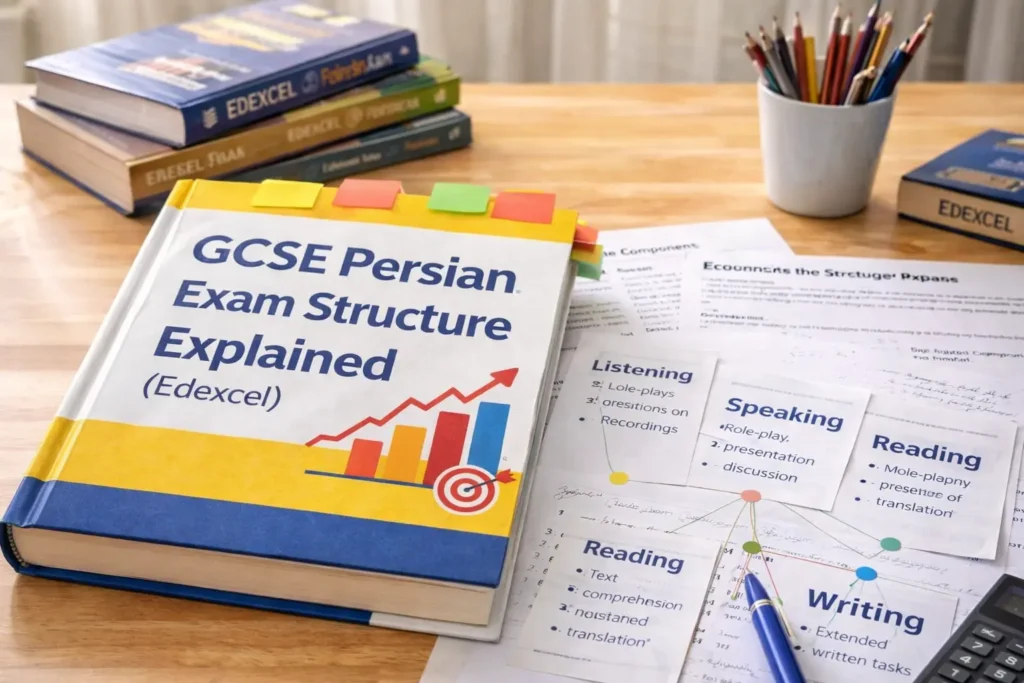Why Study Perisan
Learning a new language can open doors to new cultures, professional opportunities, and personal growth. Persian, also known as Farsi, is a fascinating choice with its unique blend of historical significance, cultural richness, and contemporary relevance. Let’s see why study Persian in 2024?
The Rich Historical and Cultural Heritage
One of the primary reasons for learning Persian is its vast and illustrious literary tradition. Persian literature boasts some of the most profound works of poetry and prose, with poets like Rumi, Hafez, and Ferdowsi whose works are celebrated worldwide. Reading their masterpieces in the original Persian offers a depth of understanding and appreciation that translations often can’t capture.
Cultural Understanding and Heritage Sites
Iran, Afghanistan, and Tajikistan, where Persian is widely spoken, are home to numerous UNESCO World Heritage sites. By learning Persian, you can appreciate these cultural treasures, from the ancient ruins of Persepolis to the architectural wonders of Isfahan, in their full context. Language is a gateway to understanding the nuances of the local culture, traditions, and societal norms.
Economic and Professional Opportunities
Persian-speaking countries are emerging markets with growing economic potential. Iran, for instance, is rich in natural resources and has a diverse economy encompassing sectors from petrochemicals to technology. Proficiency in Persian can provide a competitive edge in industries such as trade, diplomacy, and international business, where knowing the local language can facilitate smoother transactions and negotiations.
Career Advancement
In addition to business opportunities, knowing Persian can enhance your academic, translation, and international relations career. Institutions are always looking for experts in less commonly taught languages, and proficiency in Persian can make you a valuable asset in roles that require a deep understanding of the Middle Eastern region.
Linguistic and Cognitive Benefits
Persian is an Indo-European language, so if you’re familiar with other languages in this family, you might find learning Persian somewhat easier. It can also be a stepping stone for learning other regional languages like Dari and Tajik. While initially challenging, the script used in Persian can enhance your cognitive flexibility and ability to learn other languages that use the Arabic script.
Cognitive Enhancement
Studies show that learning a second language can improve cognitive functions, including problem-solving skills, multitasking, and creativity. With its rich and poetic expression, Persian can provide a mental workout that keeps your brain engaged and sharp.
Access to Unique Resources and Media
The Persian-speaking world has a vibrant media landscape. From acclaimed films and television shows to music and literature, there’s a wealth of content to explore. Understanding Persian allows you to enjoy these resources in their original form, providing insights into contemporary Persian culture and societal issues.
Academic Research
Proficiency in Persian opens scholars’ access to primary sources and research materials that are otherwise unavailable in translation. This can be particularly valuable in fields like Middle Eastern studies, history, and political science.
Personal Growth and Fulfillment
Learning Persian can be a deeply rewarding personal journey. It allows you to connect with Persian-speaking communities worldwide, fostering friendships and understanding across cultures. Whether traveling, engaging in community events, or simply broadening your perspective, knowing Persian can enrich your interactions and experiences.
Pride and Achievement
Mastering a less commonly taught language like Persian can be a significant personal achievement. It sets you apart and reflects your dedication to cultural and linguistic exploration. The sense of accomplishment that comes with understanding and communicating in Persian is unmatched and can inspire further learning and growth.
FAQs
Why do we need to study Farsi?
Studying Farsi provides cultural insights, historical knowledge, and strategic advantages, especially in international relations and Middle Eastern studies.
Why should people study the Persian Empire?
The Persian Empire is key to understanding ancient history, cultural contributions, and cross-cultural exchanges that shaped the modern world.
Is it worth it to learn Farsi?
Yes, learning Farsi offers professional opportunities, personal enrichment, and cognitive benefits by connecting with Persian culture and literature.
How many years does it take to learn Persian?
It typically takes about 1100 hours of study for English speakers to achieve proficiency, though this varies with study methods and immersion.
Which is better, Farsi or Arabic?
Choose based on your goals: Farsi for Iranian culture and history; Arabic for broader Middle Eastern focus and Islamic studies.
What is special about the Persian language?
Persian boasts a rich literary tradition, influence on other languages, and relatively simple grammar, making it accessible and culturally rich.
Getting Started with Learning Persian
Ready to embark on your journey to learn Persian? Danaa School offers comprehensive courses tailored to all levels, from beginners to advanced learners. With experienced instructors and a supportive learning environment, you can dive into the beauty of the Persian language and culture.
Learn Farsi with Danaa School and start your linguistic adventure today!







